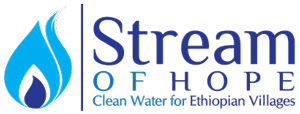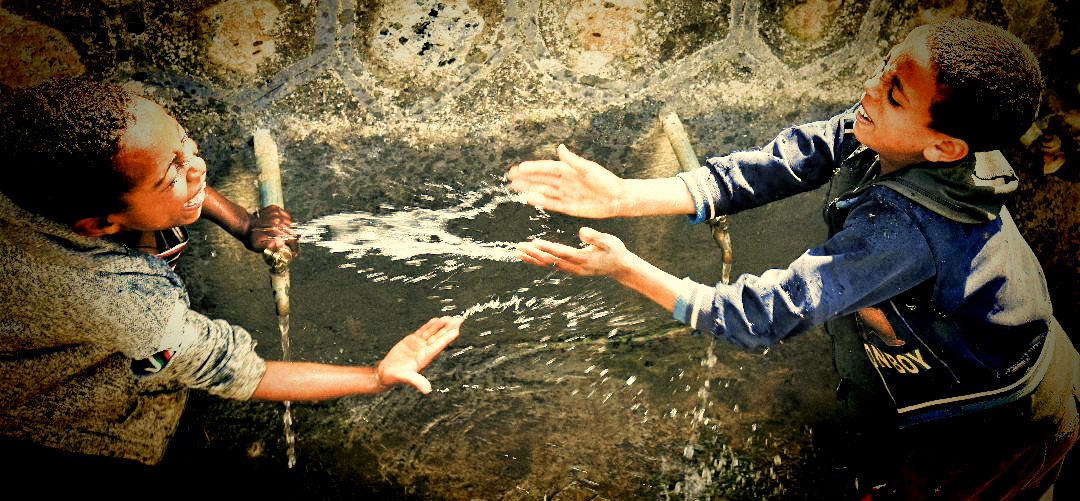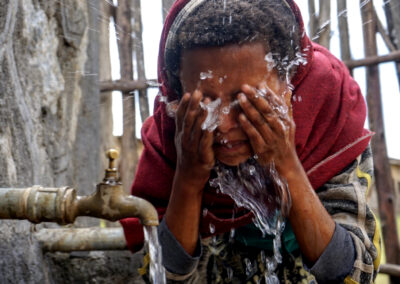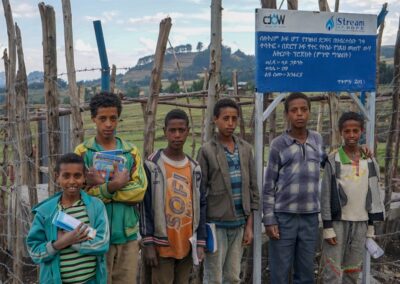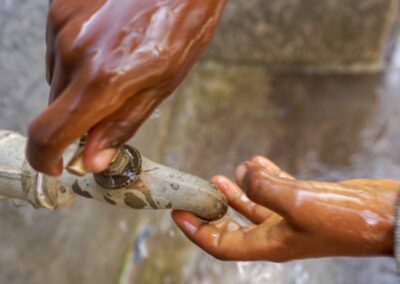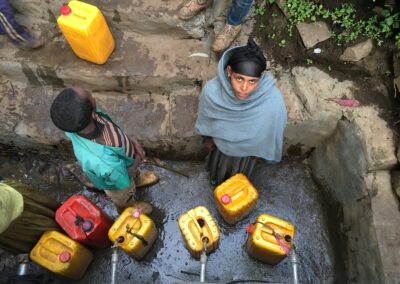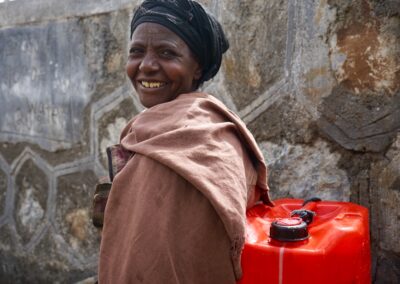South Gondar water project
In the south Gondar region of Ethiopia, most people are dependent on water from unprotected sources such as rivers, ponds, and open springs. Women and schoolgirls are the ones burdened by this as they are the ones responsible for fetching the water for their households. This is very time-consuming and can further affect their energy, health status, and full participation in their community affairs.
Due to the identified need in the region, Stream of Hope Inc. by contracting with DoW has established a water project in south Gondar with the goal of constructing 10 water points (three of the projects in school compounds) integrated with the Climate Resilience Water Safety Plan (CR-WSP). All water projects are in Lay Gayint Woreda, South Gondar of Amhara Region:
Target/ Goals
- 2,500 rural Individuals at the target community will directly have access to clean water within less than 1 km radius or a walking distances of 15 minutes
- Individuals’ water consumption will increase to 15 liters /day/person.
- Establish a water and sanitation committee (WASHCo) for each water scheme. The committee consists of three men and three females.
- 60 people trained in village level operation and maintenance (VLOM).
- Establish a Small Community CR-WSP team for the water point (ten members, 6 are the previous WASHCo members and 4 from community representative leaders, women development group leaders, and community/religious group leaders).
Ato Tesfa Desalegne and W/ro Desta Aleme are a couple living in Drop of water’s project area, Lay Gaint woreda of South Gonder, where a water point was constructed this spring. The couple and their six children solely depend on agriculture for their survival. This family is one of the many in the area who have been affected by the lack of access to clean water. They used to drink from an unprotected natural spring, which they would surround with stones to protect from cattle and other contaminant agents. This past year has been very difficult for the family as they have suffered from extreme thirst.
Additionally, W/ro Desta had to wake up early in the morning, around 4 am, to make it to the queue and fetch fresh spring water before all the clean water was taken. As the responsibility of fetching water lies mostly on her, she woke up every morning to fetch water for her family, often fighting off hyenas along the way. In some cases, her husband would escort her to avoid possible life-threatening situations.
There was also no fair distribution of the water. Because there was a “first come first serve” mentality, some would get 10 Jeri cans of water, and others may not have the opportunity to even get one, and if you arrive late then the water is more likely to have suspended particles. W/ro Desta said that she has developed worms in her stomach due to drinking from the spring.
The completion of the new water point has significantly changed Ato Tesfa and Desta’s family for the better. They no longer have to wake up in the middle of the night to fetch water and have access to a clean water supply. They are now accessing clean water between 7 am-8 am and also have the option of choosing an additional fetching time in the afternoon.
The community has established a water committee whose primary task is to protect the well and to ensure sustainable use of the water which gives the fair distribution of water among the beneficiaries (i.e up to 4 Jeri cans per day). Ato Desta is also enjoying his new role as an active chairman of the WASHco committee, anticipating serving his community with loyalty.
W/ro Desta’s name translates to happiness, and she is truly happy now that she and her family can enjoy a healthy lifestyle.
Stream of Hope, Inc continues to seek opportunities like this in partnership with DoW to provide safe, clean water for families like Auto Tesfa and W/ro Desta’s.
